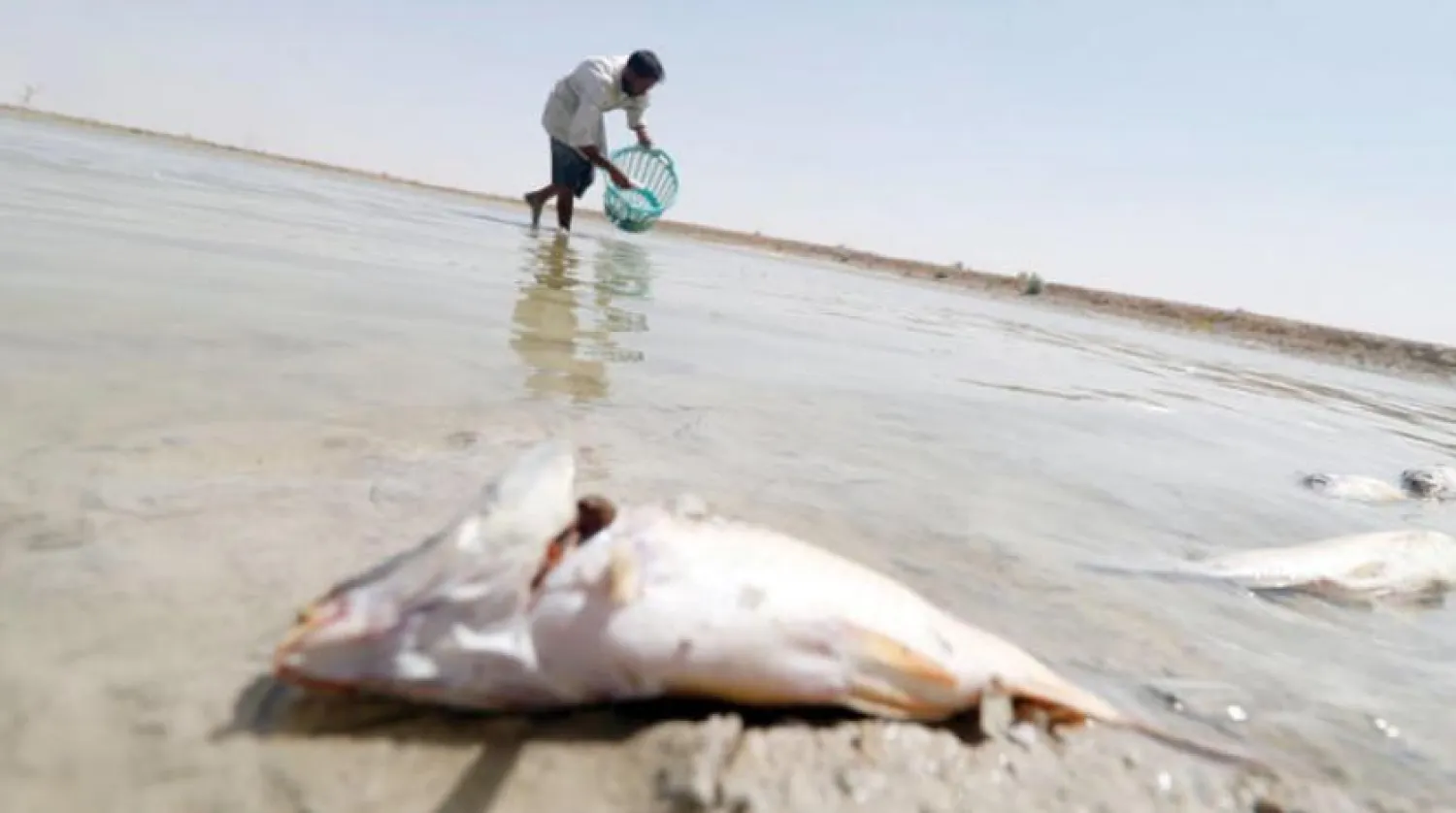Younes Selim clutches his stomach in pain at a hospital in southern Iraq, one of thousands to fall ill in a region flush with oil but desperately short of drinking water.
Sitting in an emergency ward in Basra, along with patients on drips suffering from severe diarrhea, Selim said he had no choice but to drink from the tap despite knowing the risk.
"We only give mineral water to our three children, but my wife and I often have to drink tap water," he told AFP, waiting for one of the hospital's overwhelmed doctors to treat him.
Since August 12, "more than 17,000 patients have been admitted for diarrhea, stomach pains and vomiting," said Ryad Abdel Amir, head of Basra's health department.
He said that in his 11 years in the job he has never before seen such a crisis, which has been exacerbated by a lack of public services and rising prices.
Umm Haydar, a market vendor in the port city, said she also struggles to provide drinking water for her family of 30.
"A thousand liters cost 20,000 dinars ($17) and once we have all drunk and washed the children, in half an hour there's nothing left," the grandmother said.
Until recently, the same amount of water cost 5,000 dinars.
While Iraq's water shortages are not just confined to Basra, the region suffers from a toxic mix of polluted and salty water, dismal public services, power cuts and open sewers.
The province has abundant energy resources and Iraq's only stretch of coastline, but it is also heavily populated and has creaking infrastructure.
It has been shaken by weeks of protests over the lack of basic services, despite government pledges to pump billions of dollars into the neglected south.
Prime Minister Haider al-Abadi acknowledges that water salinity has been increasing while chlorine concentration has been declining for decades.
This year the crisis is coupled with a drop in rainfall, according to the premier.
Basra sits on the Shatt al-Arab waterway formed by the confluence of the Tigris and Euphrates rivers which flow into the Gulf.
Repeated wars and dams that have damaged the ecosystem mean that salt water has taken over and now reaches 300 kilometers upriver from the sea.
Waste water produced by the country of 38 million people is also poisoning the Tigris and Euphrates.
In Basra, sewage flows into open canals that join the Shatt al-Arab, mixing with industrial pollution from the oil industry -- Iraq's sole source of foreign income -- as well as from neighboring Iran.
"The Shatt al-Arab has become a dump and for 15 years the treatment plants have not been renovated," said Faycal Abdallah of Iraq's Governmental Council for Human Rights.
His organization wants the province to be declared a disaster zone so that it can benefit from special funds and fresh water from reservoirs upstream.
"The province is supposed to get 75 cubic meters of water per second, but only 59 cubic meters per second really comes in" with provinces upstream taking water for agriculture, he said.
More fresh water would repel the salt water back towards the Gulf.
Fish farmer Jassem Mahmoud fears for his future after losing all 50 million of his juvenile fish and sinking into debt.
"It's the worst season... and surely the last year for us" said Mahmoud, after 25 years in the industry.
On the edge of nearby ponds, hundreds of dead fish rot on sun-baked earth, while others float on water drawn from the nearby Tigris.
Kazem al-Ghilani uses a device to test the water of his pond.
"The salinity is 12 milligrams per kilo of water. In normal times, it varies between 1 and 1.5 milligrams," the agricultural engineer said.
The prime minister says his government is not to blame and insists that water maintenance is the "responsibility of the provinces".
Back in the emergency room, Abdel Amir fears cooler autumn weather could significantly worsen the situation.
The combination of salt water with a very low chlorine concentration and milder weather will be the ideal breeding ground for cholera, he warned.









